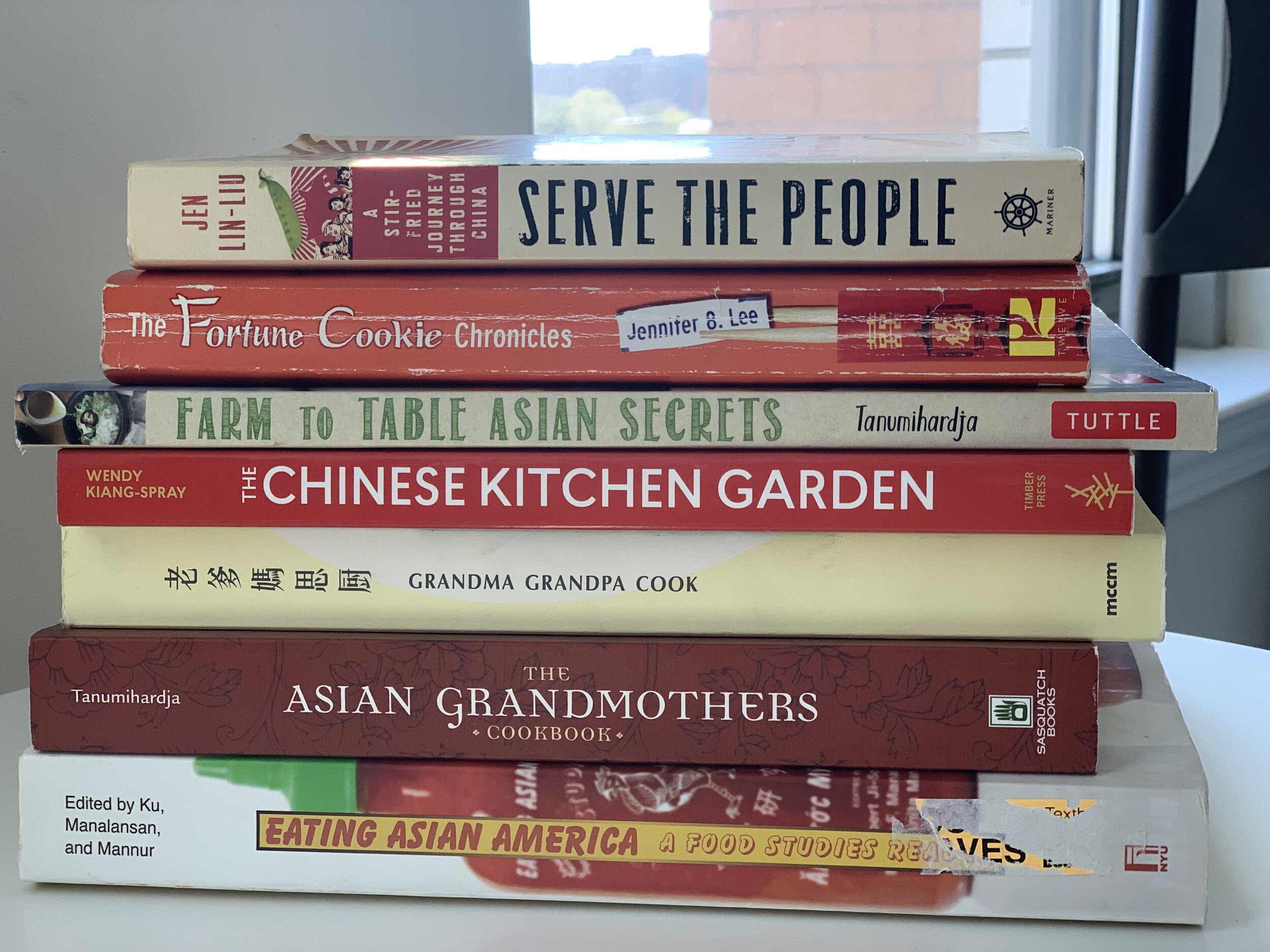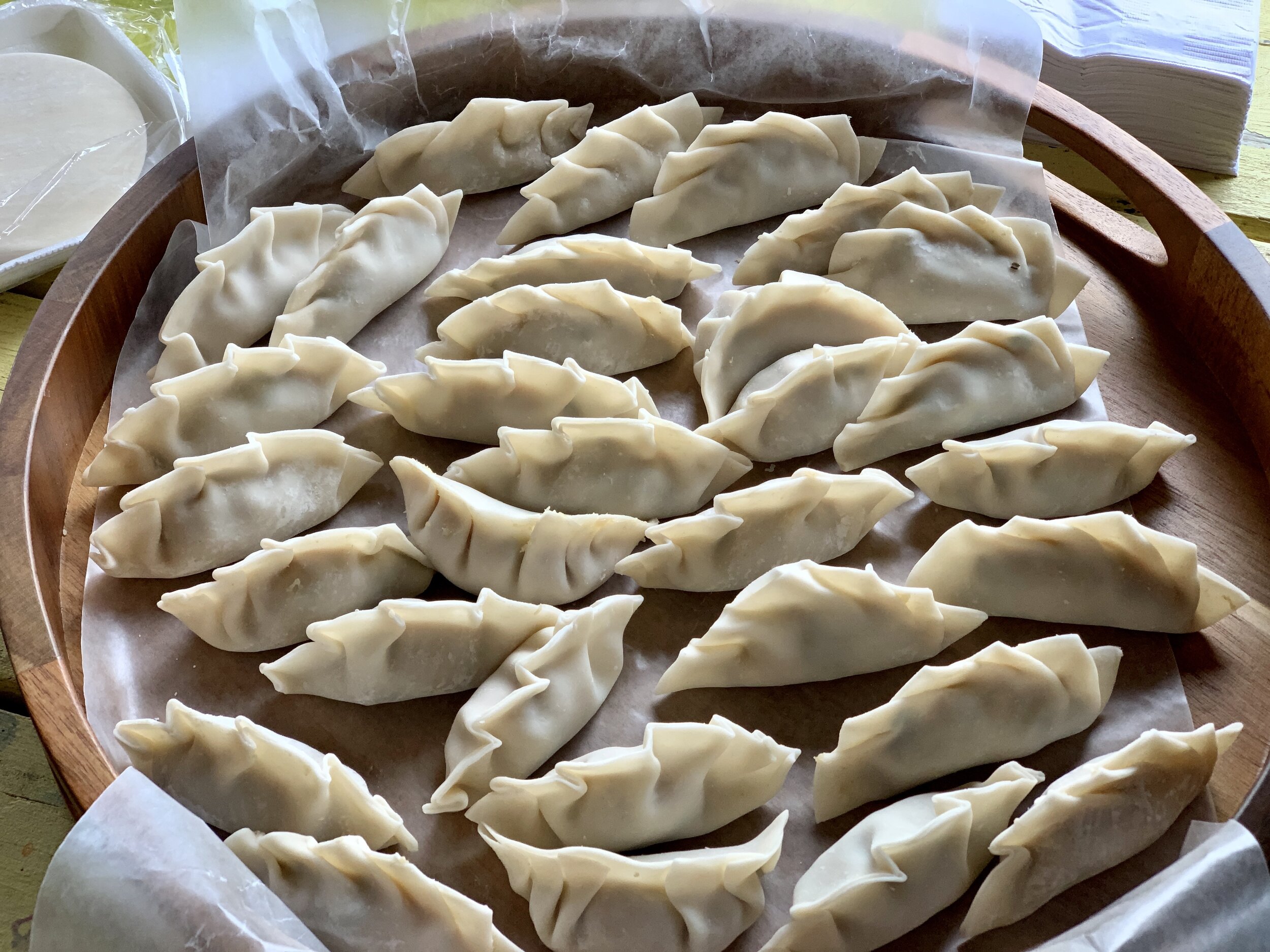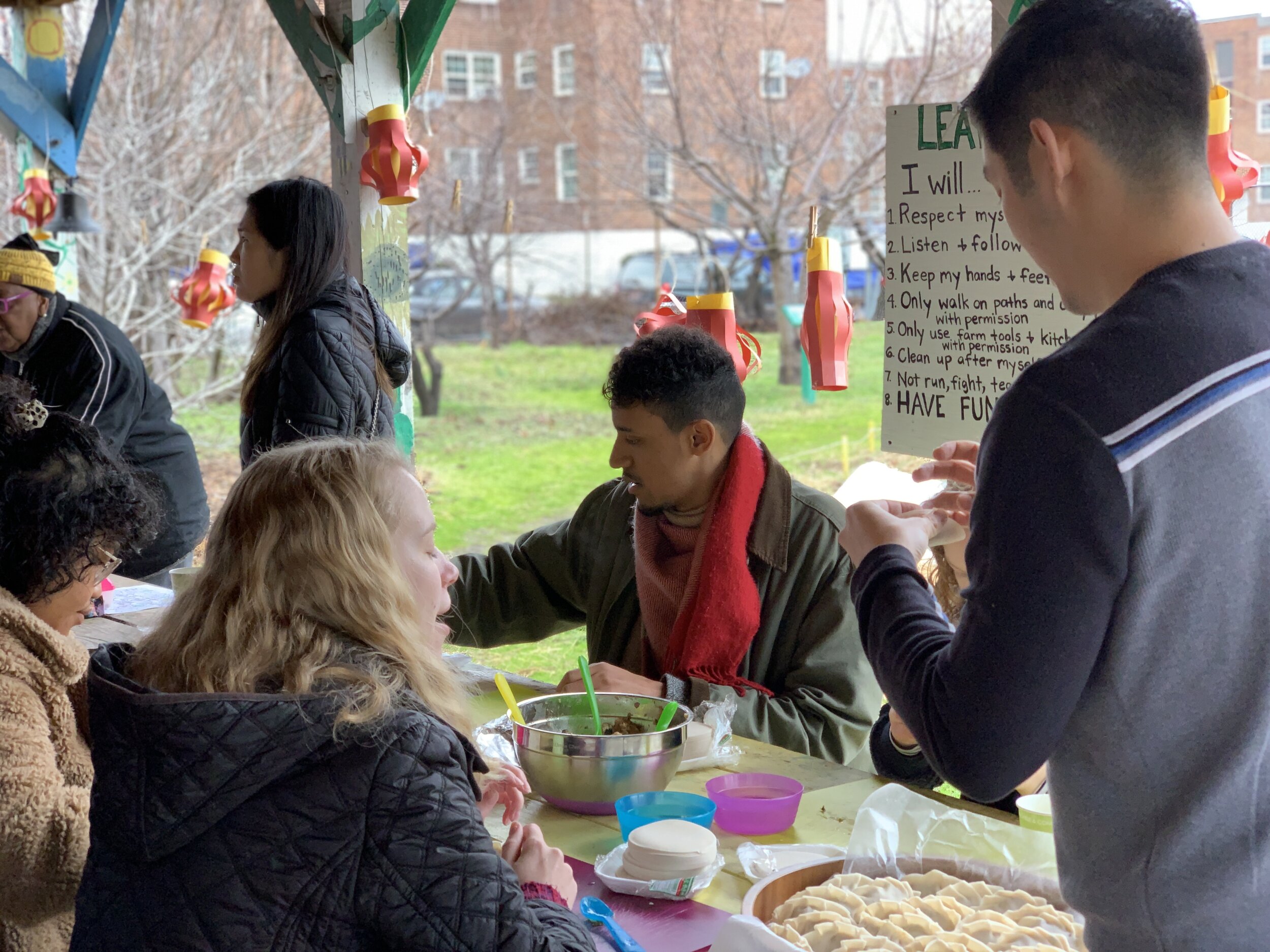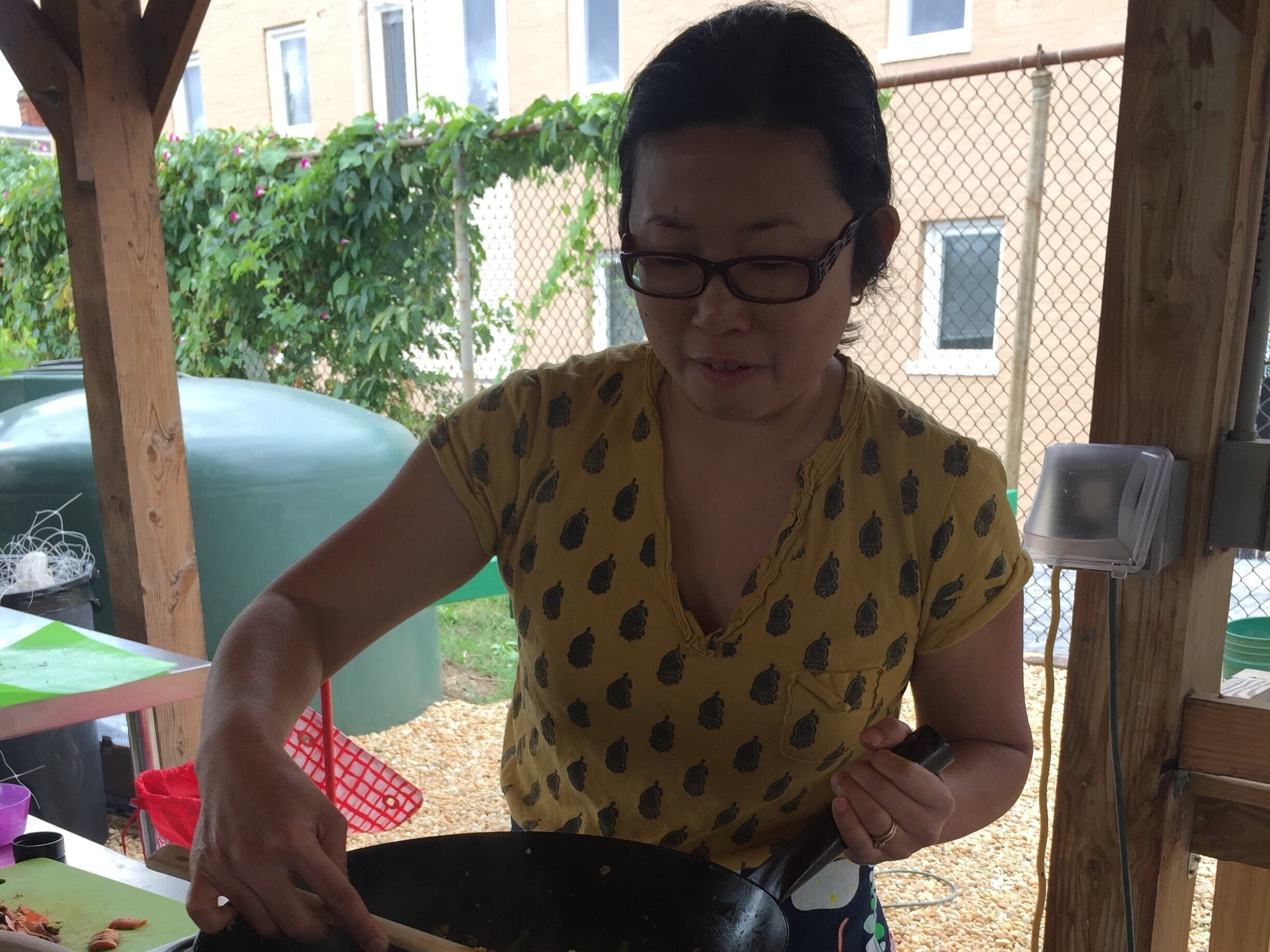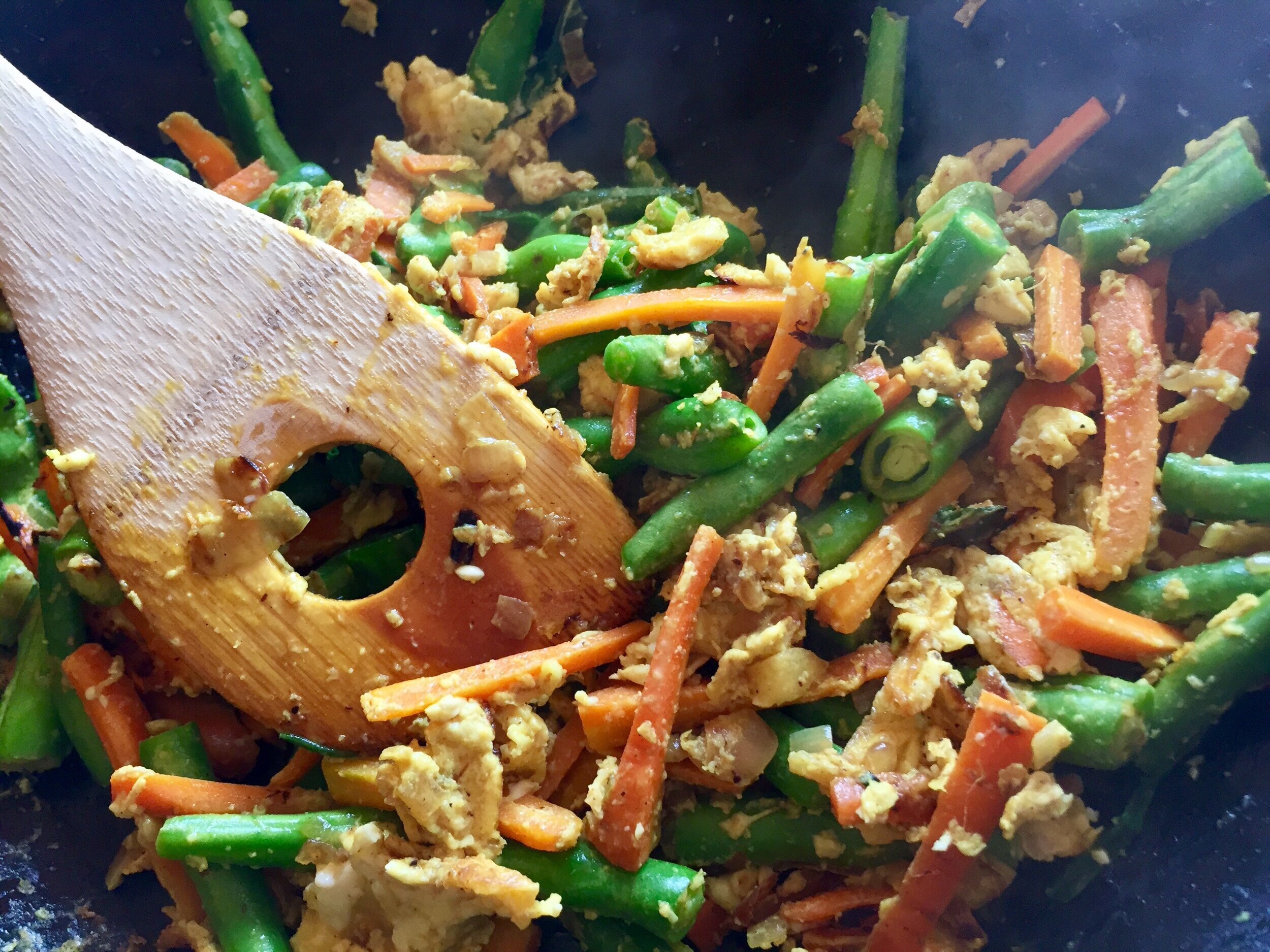On Books + Belonging & Healing with Food: Reflections on Anti-Asian Violence & Identity
Dear Friend,
While we rejoice to see hopeful signs of spring and vaccines during this year of ongoing pandemic challenges, we are also grieving, mourning, and fighting the rise in anti-Asian violence. From the shooting in Atlanta that murdered 8 people, including 6 women of Korean or Chinese descent, to the numerous attacks on Asian American people, particularly the elderly, in cities across the country, this violence has been heart-wrenching and a punch in the gut. We honor the lives lost, their tenacity, spirit, and courage to thrive in a country that has presented many obstacles from language barriers, racial microaggressions, job discrimination, and more.
As a Chinese American born to a mother whose family fled Vietnam as refugees and a father who immigrated from Hong Kong due to fears about what would happen to Hong Kong when China regained control from the United Kingdom, I am the direct beneficiary of the United States’ immigration and refugee policies.
As I reflect on my own pain and anger, I keep turning back to books and food for solace. Books open my eyes and let me step into the journey of other Asians and Asian Americans. As a child who did not feel as if I belonged, books offered and continue to offer a portal into another world and remind me that my story is not the only one and that I am not alone. I am reminded of the Asians and Asian Americans that have come before me, the ones here now, and the ones that will come after me. Of their resilience, grit, and spirit. The story of my ancestors may be one marked by war and suffering, but there is also joy, laughter, connection, pride, and love.
Food has allowed me to connect with my culture, even when language barriers made it challenging to communicate with my own family. My family and I could show our love for each other by cooking and eating together. My happiest childhood memories involve eating dim sum with my grandparents in Hong Kong or Flushing or making dumplings together and seeing who could eat the most. One of my greatest joys at the farm has been to share my love of food with others, and I am committed to continuing to use food as a tool to foster community and connection with each other.
Making Dumplings as part of Common Good's Fire Cider is Free and Lunar New Year Celebrations,
January 25, 2020
The importance of Asian and Asian American voices has never felt more critical for me as they provide a source of strength, inspiration, and direction. I know dearly that Asian American representation in media is not about slapping on one Asian character at the end and winning diversity points, but illustrating and celebrating the humanity and multitude of Asians and Asian Americans. In this time of increased anti-Asian hate, this feels more important than ever. While I fervently dream and work for a future where we can approach everyone with empathy, especially when we may not understand the other person, in the meantime nuanced and diverse representation of Asians and Asian Americans will be critical to helping us see each other’s humanity, and foster acceptance, respect, and love.
And that’s why how we talk about and represent Asians and Asian Americans in media matters. Words shape minds. Mindsets shape actions. We need a culture shift in how Asians and Asian Americans are represented in the media, how our stories are told (or more often, how our stories are overlooked and made invisible).
In changing this culture, uplifting Asians and Asian Americans' contributions to food and agriculture is one critical step. We recognize and pay homage to the long history of Asians and Asian Americans from Filipino farmworkers, Japanese farmers, and the many, many Chinese restaurateurs. We remember that Japanese Americans were some of the United States' most productive farmers. When they were forcibly removed from the over 6,100 farms they owned and unjustly incarcerated during World War II, this contributed to the resulting food shortages and led to the impetus to promote household Victory Gardens. Japanese Americans continued to farm even in the incarceration camps to rebuild community and provide a source of fresh produce.
Cooking Demo of Turmeric Zucchini and Carrot Stir-Fry (Orak Arik)
by Patricia Tanumihardja, author of The Asian Grandmothers Cookbook and Farm to Table Asian Secrets: Vegan & Vegetarian Full-Flavored Recipes for Every Season
Common Good's Community Work Day, September 30, 2017
As an organization, we reaffirm our commitment to equity and creating a safe space for community members of all backgrounds to gather and connect. We know a lot of Chinese customers patronize our Farm Market and are working to offer multilingual signage and interpretation to the greatest extent possible. We are taking bystander intervention training so that we can feel equipped as staff to provide support, should it be needed. And, of course, we are continuing our own education of the history of inequity and systemic oppression.
We acknowledge the legacy of white supremacy and imperialism and the impact on Asians and Asian Americans. This legacy lives on today in the ways that Asians have been displaced due to war and further marginalized through discrimination throughout the diaspora. We also know that the journey toward liberation is a collective one, and that racial justice must be multiracial, multiethnic, and intersectional. In doing so, we recommit ourselves to living out our values individually and as an organization.
That’s what we’re doing. Here’s what you can do:
Attend a Bystander Intervention Training hosted by Hollaback or DC Peace Team
Review these Bystander Intervention Tips from Immigrant History Initiative
Uplift the voices of Asian Americans in media AND at the polls, advocate for legislation and policies that protect voting rights
Buy a meal in support of Chefs Stopping AAPI Hate
Explore some of the books and resources I am reading and resonating with below
“We can begin by doing small things at the local level, like planting community gardens or looking out for our neighbors. That is how change takes place in living systems, not from above but from within, from many local actions occurring simultaneously.”
— Grace Lee Boggs (from Colorlines)
Acknowledgements & Gratitude
A thank you to the many Asian American groups whose events I have engaged in at various times of my life and found camaraderie over the years: National Asian Pacific American Women’s Forum, Organization of Chinese Americans - DC, Asian Pactific American Labor Alliance, and Progressive Asian American Christians. My involvement may be intermittent, but the impact lives on. While I can never adequately communicate my gratitude to my family, I appreciate their insistence and reminders to lean into my Chinese identity even when that felt difficult as a kid. And of course, for nourishing me through lots of delicious food! A thank you to Kelsey (@kelseysreads) for resparking my love of reading after a COVID-induced hiatus, introducing me to the world of #bookstagram, and kindly lending me many books to read. I have eternal gratitude for libraries for providing a safe place, physically and virtually, to read and imagine.
In solidarity,
Josephine Chu
Note: I borrow this language from National Young Farmers Coalition as I also apply the sentiment to this letter, "While we use the terms Asian and Asian American throughout, we acknowledge that this language is insufficient in conveying the richness and breadth of the more than thirty different nationalities and ethnic groups represented within Asian American communities, as well as the Asian diaspora in countries around the world."
Photo Credits
Bookstack, Dumpling, Cooking Demo Photos: Josephine Chu
"We Belong Here" Illustration: Amanda Phingbodhipakkiya as part of New York City's I Still Believe campaign
Some books that I am returning to, have been reading, and some new ones:
These three novels tell the stories of families living in Korea/ Japan, Vietnam, and Iran respectively during times of war and upheaval with grace and compassion.
Pachinko, by Min Jin Lee
“Do you know why I wrote these books?
I wrote it because I think we are fascinating.
I believe we are heroic,
tragic,
romantic,
long- suffering,
and I believe we are powerful.
You and I are nothing short of epic.
⠀
Do you know for whom I wrote these books?
I wrote it for you.
I wrote it for us.”
⠀
- Min Jin Lee, 2019 Korean American Community Foundation Gala
The Mountains Sing, by Nguyễn Phan Quế Mai
Aria by Naznine Hozar
These two books and documentary tell the story of Grace Lee Boggs, a Chinese American labor organizer and activist who worked tirelessly towards racial and social justice.
Living for Change: An Autobiography by Grace Lee Boggs
The Next American Revolution: Sustainable Activism for the Twenty-First Century by Grace Lee Boggs with Scott Kurashige
American Revolutionary: the Evolution of Grace Lee Boggs, a documentary about her life
Serve the People depicts the author’s journey to reconnect with her roots through exploring the diverse cuisines throughout China while The Fortune Cookie Chronicles tells the story of how Chinese food came to American and how it evolved to American tastes. The Search for General Tso is a documentary that “traces the history of Chinese food in America, which is in many ways a microcosm of the history of Chinese people in America. Due to the Chinese Exclusion Act of 1882, which prohibited the immigration of Chinese laborers, Chinese newcomers had to start their own businesses, and many turned to restaurants.” (from a Slate review)
Serve the People: A Stir-fried Journey Through China, Jen Lin-Liu
The Fortune Cookie Chronicles: Adventures in the World of Chinese Food, Jennifer 8. Lee
The Search for General Tso documentary
These two books beautifully intersperse the stories of grandparents living in the United States and Hong Kong, respectively, with their recipes.
The Asian Grandmothers Cookbook, Patricia Tanumihardja
Grandma Grandpa Cook, edited by Evelyna Liang, Yeung Yang
The Chinese Kitchen Garden profiles how to grow and prepare different Chinese vegetables while Farm to Table Asian Secrets provides Asian-inspired recipes using produce available in each season.
The Chinese Kitchen Garden, Wendy Kiang-Spray
Farm to Table Asian Secrets: Vegan & Vegetarian Full-Flavored Recipes for Every Season, Patricia Tanumihardja
These three books provide historical and contemporary context on Asian America. The Making of Asian America explores the deep roots of Asian Americans in this country while Eating Asian America curates the analysis of twenty scholars on topics such as migration experience of a Chinese restaurant worker in New York City, the politics of mess hall in the Japanese American incarceration, and Asian American farmers and retailers as food system pioneers. While not written by an Asian or Asian American, After the Last Border tells the story of two families who relocated their livelihoods to the United States as refugees through the author’s deep friendship and interviews with a woman from Myanmar and a woman from Syria while interspersing with the history of the United States’ refugee policy.
The Making of Asian America: A History by Erika Lee
Eating Asian America: A Food Studies Reader, edited by Robert Ji Ku, Martin Manalansan, and Anita Mannur
After the Last Border: Two Families and the Story of Refuge in America, by Jessica Goudeau
Additional recommendations
books about Asians and Asian Americans
An Incomplete Guide to AAPI Lit by Nikki Myoshi Rabin, PhD of @_itslitbooks_
Asians and Asian Americans and Farming
Queer, BIPOC Farmers are Working for a More Inclusive and Just Farming Culture, Aaron Mok, Civil Eats
Young Farmers in Solidarity with AAPI Communities, National Young Farmers Coalition
Minari, a film that “follows a Korean-American family that moves to an Arkansas farm in search of their own American Dream”
My Farmland, a film that tells the story of 3 Chinese families farming in Canada
Black-Asian Solidarity
How a Shared Goal to Dismantle White Supremacy is Fueling Black-Asian Solidarity, Kat Moon, Time
The History of Solidarity Between Asian and Black Americans, Alisa Chang and Kim Tran, NPR
Healing Justice: Reading & Watching Our Black & Asian Communities Being Killed, Total Liberation Collective
History of Anti-Asian Racism & Resources
Why is Racism Towards Asians… So Normal?, CU Project
The Overlap of Anti-Asian Racism and Sexual Violence, Amanda Nguyễn
Anti-Asian Violence Resources, Haapi Erg
10 Essential Podcasts from AAPI Creators, curated by Justine Goode
